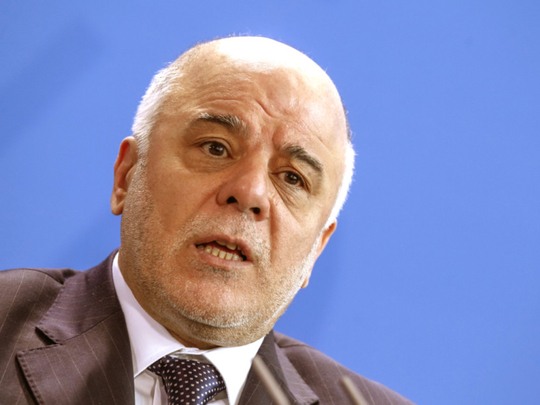
Personal identity of the citizens has been a contentious issue for successive governments in Iraq. Recently, the government led by Prime Minister Haider Al Abadi introduced a new Act, providing for the issuance of a unified national card. The law has raked up a major controversy, especially among the marginalised minorities. To protest this Act, which was voted on October 27, 2015, deputies belonging to the minority communities have boycotted the meetings of parliament.
The law has caused concern among Christians and other non-Muslim minorities as it coerces children under 18 years to convert to Islam if one of the parents had been converted. (Article 26/2). In the past, official forms did not have a column for religion, but now it is mandatory to state the religion, which has created fear of discrimination.
Christians and other minorities believe that this law is extremely racist and harms national unity and the balance between communities, religious pluralism and the principle of mutual coexistence. There are many irritants about the law, including:
- The consolidated card code number (26) constitutes a flagrant violation and abuse of the human rights of non-Muslims, forcing them to convert.
- The law is a violation of the principles of democracy enshrined in international conventions, including the 1948 United Nations Declaration for the protection of human rights, of which Iraq is a signatory.
- The law contradicts the principles of the Iraqi Constitution, which provides for the protection of human rights and equality of all Iraqi people without discrimination.
- The law leads to division, hatred and rivalry among different sections of the Iraqi society and threatens peace.
- The law seeks to force migration and displacement of minorities in the new Iraqi nation.
The most important question is, how the Iraqi parliament approved such a law?
Christian MP Rafidain and other deputies from Yazidis, Sabeans, Shabak minorities say they had forcefully argued before the crucial vote that minor children should be allowed to continue with their respective faith until the age of 18, after which they should have the freedom to opt for the religion of their choice.
Article 26 of the uniform national card law, as approved by the House of Representatives, and enforced by the Ministry of Interior, provides that ‘a non-Muslim may switch his religion and the minor boys must embrace the Islamic faith of their parents”.
In a letter addressed to Salim Al Jubori, president of the House of Representatives, on September 13, Patriarch Raphael Louis Sacco had stressed the need for the unified national law to prudently deal with the issue of religious affiliation, especially with minors, so that they “are not obliged to convert to another religion.
He further stressed that the religious rights and freedom given to religious minorities are sacrosanct and cannot be compromised — not just in Iraq, but throughout the civilised world. Even in the Third World countries, minorities enjoy constitutional guarantees for their rights. Sacco asked the “members of parliament not to commit the historic blunder of deviating from the core principles of Islam and not to get caught up in political pressure and vested interests and cancel this paragraph”.
Throughout the history of Iraq, minorities in the multicultural country had been exposed to the ugliest methods of oppression and even genocide, as had happened to the Yazidis. Christians, Sabians and the Jews, who have been subjected to murder, displacement, captivity — especially of women — confiscation of property and forced conversion to Islam.
Former Iraqi president Saddam Hussain had safeguarded the rights of the minorities, but when the state was destroyed, religious minorities lost all protection in the militia system, which led to their exodus from the country. And since the emergence of Daesh (the self-proclaimed Islamic State of Iraq and the Levant), religious minorities have become victims of a sustained campaign of extermination.
It is true that most of the legislations since the Ottoman period sought to curtail the rights of minorities and integrate them into one religion or national identity. But all these legislations, including the new Iraqi constitution of 2005, had incorporated provisions to ensure that all religious, political, intellectual, cultural and other rights — regardless of gender, race, religion, belief, doctrine etc — remained integral and inviolable. It was a different matter that these texts mostly remained on paper and the politics on the ground hardly reflected their true intent.
The introduction of the new unified identity law has changed everything. The highly controversial legislation had been rejected by many institutions, including the United Nations Mission in Iraq, which denounced Article 26 as it constitutes “a clear encroachment” upon Christians and other minority rights and called for appropriate amendments. The unified identity card law is blatantly racist and runs against the spirit of Iraq’s national unity, religious pluralism and the principles of peaceful coexistence. It contradicts the tenets of Quran, which disapproves of coercion in the practice of religion.
As a result of the pressure, the Iraqi parliament, in its last meeting, decided to bring an amendment to Article 26 dealing with the “national card” for religious minorities, but an announcement about the change is yet to come about.
Shakir Noori is a UAE-based journalist and author.










